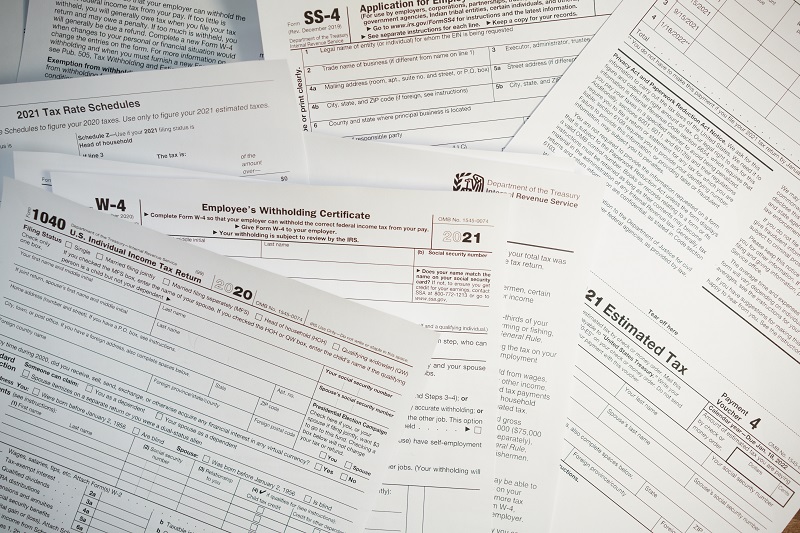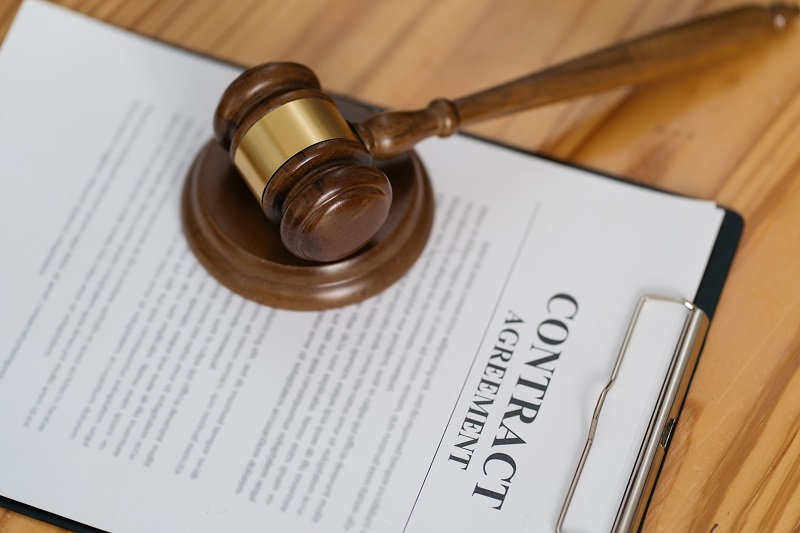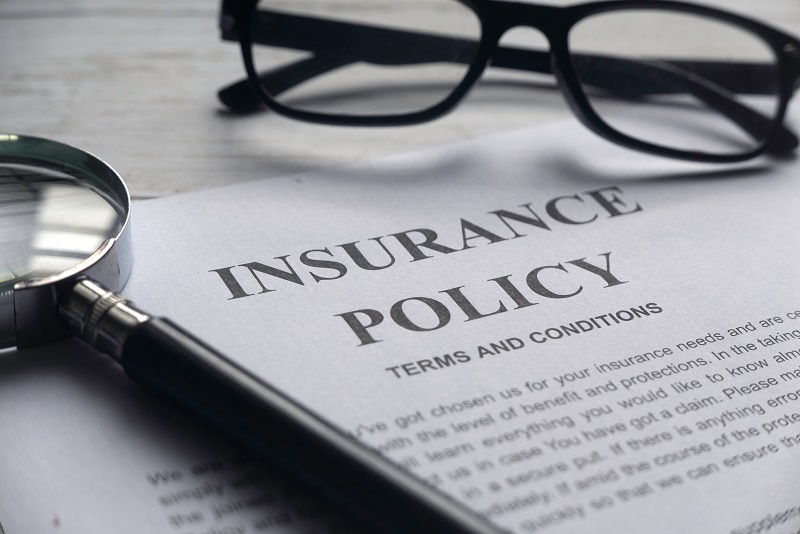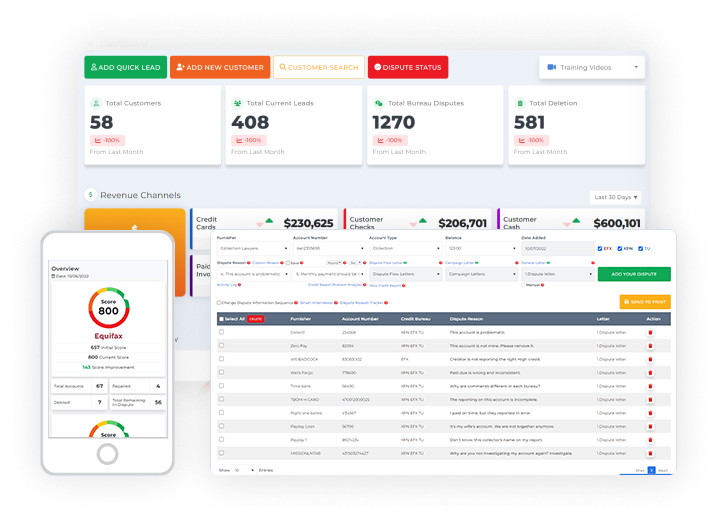If you’re interested in starting a credit repair business in Nebraska, it’s crucial to familiarize yourself with the state’s legal requirements. In this article, we’ll examine the laws and regulations that apply to credit repair businesses in Nebraska, so you can launch your business with confidence and avoid any legal pitfalls.
Choose a Business Name and Structure

Pick a name for your credit repair business and decide on its legal structure (e.g., sole proprietorship, partnership, limited liability company, or corporation). You may want to consult with an attorney or accountant to determine the best structure for your specific situation.
When choosing a business name for credit repair in Nebraska, there are several factors to consider:
Make it Clear and Descriptive:
Your business name should clearly communicate what your business does. It should be descriptive enough to let potential customers know that you offer credit repair services.
Keep it Short and Memorable:
A short and catchy business name is easier to remember and will be more effective in branding your business. Avoid long and complicated names that may be difficult for customers to remember.
Check Availability:
Before you finalize your business name, make sure it is available for use in Nebraska. You can check the availability of your desired name through the Nebraska Secretary of State website.
Consider Your Target Audience:
Consider the demographics of your target audience when choosing your business name. A name that appeals to millennials may not resonate with baby boomers, for example.
Avoid Confusing Names:
Your business name should not be easily confused with another business or trademarked name. This can lead to legal issues and confusion for customers.
Think About Branding:
Consider how your business name will look on marketing materials, such as your website, business cards, and advertisements. It should be visually appealing and fit with your brand identity.
Choosing a business structure for credit repair in Nebraska involves considering several factors, such as the level of personal liability, tax implications, and management structure. Here are the most common business structures for credit repair in Nebraska:
Sole Proprietorship:
A sole proprietorship is the simplest and most common business structure for small businesses, including credit repair businesses. It is a business owned and operated by one person and has minimal legal and tax requirements. However, the owner is personally liable for all business debts and obligations.
Limited Liability Company (LLC):
An LLC is a popular business structure for small businesses that provides liability protection for the owners while maintaining flexibility in management and tax treatment. It requires less paperwork than a corporation but offers more protection than a sole proprietorship.
Corporation:
A corporation is a separate legal entity that can own property, enter into contracts, and sue or be sued in its own name. It provides the most protection against personal liability, but it is also the most complex business structure and requires more paperwork and formalities.
Partnership:
A partnership is a business owned and operated by two or more people. Partnerships can be either general or limited, and each partner has a share of the profits and losses of the business. Like sole proprietorships, partnerships are not separate legal entities, and the partners are personally liable for business debts and obligations.
Register Your Business

Register your business with the Nebraska Secretary of State by filing the appropriate paperwork. This may include articles of incorporation or organization, depending on your chosen business structure.
Visit the Nebraska Secretary of State Website:
Choose Your Business Structure:
On the website, navigate to the “Business Services” section. Depending on your chosen business structure (e.g., LLC, corporation), click on the appropriate category under “Business Entities” (e.g., “Limited Liability Companies” or “Corporations”).
Review the Requirements:
Read through the requirements and guidelines for your chosen business structure. This will help you understand what documentation and fees you need to submit when registering your business.
Download the Necessary Forms:
Download the appropriate forms for your chosen business structure. This may include Articles of Incorporation for a corporation or Certificate of Organization for an LLC.
Complete the Forms:
Fill out the forms with the required information, such as your business name, registered agent, principal office address, and other pertinent details.
Pay the Filing Fee:
Determine the filing fee for your chosen business structure, which will be listed on the form or the website. Prepare payment in the form of a check or money order made payable to the “Secretary of State.”
Submit the Paperwork and Fee:
Mail the completed forms and payment to the Nebraska Secretary of State’s office at the address provided on the form or website. Alternatively, you may be able to submit your documents and payment online using the Nebraska Secretary of State’s “One-Stop Business Registration” portal.
Wait for Confirmation:
Once your paperwork is processed and approved, the Nebraska Secretary of State’s office will notify you, and your business will be officially registered.
Obtain an EIN

Apply for an Employer Identification Number (EIN) from the Internal Revenue Service (IRS). This number is used for tax purposes and is required for most businesses.
Determine Your Eligibility:
You must have a valid taxpayer identification number (such as a Social Security Number) to apply for an EIN. Also, you must be the person responsible for managing the business entity, such as the owner or principal officer.
Access the EIN Online Application:
You can apply for an EIN online through the IRS website by clicking on the “Apply for an Employer Identification Number (EIN) Online” link.
Complete the EIN Online Application:
The online application will ask for information about your business, such as the name, address, and legal structure. You will also need to provide your taxpayer identification number and contact information.
Submit the Application:
Once you have completed the online application, review it carefully for accuracy and then submit it electronically. The IRS will immediately issue an EIN if the information provided is valid.
Receive Your EIN:
After you submit the application, you will receive an EIN immediately on the IRS website. You can also choose to receive the EIN by mail or fax.
It is important to note that applying for an EIN is free of charge. If you need further assistance, you can contact the IRS Business and Specialty Tax Line at 1-800-829-4933.
Register for State Taxes

Register your business with the Nebraska Department of Revenue to obtain a sales tax permit if you plan on selling any goods or services subject to sales tax.
Visit the Nebraska Department of Revenue website:
Navigate to the "Business" Section:
On the website, find the “Business” tab in the top navigation menu and click on it.
Find the Nebraska Tax Application:
Under the “Forms” section, locate the Nebraska Tax Application, Form 20.
Complete the Form:
Fill out Form 20 with the required information about your business, such as your business name, address, Employer Identification Number (EIN), business structure, and the type of tax you are registering for. If your credit repair business will be selling goods or services subject to sales tax, make sure to indicate this on the form.
Submit the Form:
Once you have completed Form 20, you can either mail it to the Nebraska Department of Revenue at the address provided on the form or submit it electronically via the Nebraska Department of Revenue’s “E-file” system.
Wait for Confirmation:
After your application is processed and approved, the Nebraska Department of Revenue will issue you a sales tax permit, if applicable. You’ll also receive information on how to file and pay your taxes.
Open a Business Bank Account

Open a separate bank account for your credit repair business to keep your personal and business finances separate.
To open a business bank account for credit repair in Nebraska, follow these steps:
Choose a Bank:
Research and compare different banks to find one that offers business accounts and services that meet your needs.
Gather Required Documentation:
Before you visit the bank, gatherthe necessary documentation, which may include your EIN, business registration papers, identification documents, and any other relevant financial documents.
Schedule an Appointment:
Contact the bank to schedule an appointment with a business banker. This will ensure that you have the time and attention you need to open your account and ask any questions.
Complete the Application:
During your appointment, the banker will guide you through the process of completing the application for your business account. You will need to provide basic information about your business, such as the name, address, legal structure, and EIN.
Make an Initial Deposit:
To open your account, you will need to make an initial deposit. The amount may vary depending on the bank and the type of account you choose.
Set Up Online Banking:
Many banks offer online banking services, which allow you to manage your account, pay bills, and transfer funds electronically. You can set up these services during your account opening appointment.
Order Checks and Debit Cards:
Once your account is open, you can order checks and debit cards to make transactions.
Obtain Any Required Licenses and Permits

Nebraska does not have specific licensing requirements for credit repair businesses. However, you should check with your local city and county governments for any additional permits or licenses that may be necessary.
In Nebraska, credit repair businesses are not required to obtain a specific license or permit to operate. However, there are certain regulations and laws that credit repair businesses must comply with to avoid legal issues.
Business Registration:
All businesses operating in Nebraska must register with the Secretary of State. This involves filing the appropriate paperwork and paying the necessary fees.
Compliance with Federal and State Laws:
Credit repair businesses must comply with federal and state laws, such as the Fair Credit Reporting Act (FCRA) and the Credit Repair Organizations Act (CROA). These laws regulate the credit repair industry and prohibit certain practices, such as making false claims about credit repair services.
Business Insurance:
Credit repair businesses may need to obtain insurance to protect themselves against liability and other risks. General liability insurance and professional liability insurance are common types of coverage for credit repair businesses.
Compliance with Advertising Laws:
Credit repair businesses must comply with state and federal advertising laws. For example, advertising must be truthful and not misleading.
Familiarize Yourself with Federal and State Credit Repair Laws

Credit repair businesses must comply with the Credit Repair Organizations Act (CROA) at the federal level, as well as any applicable state laws. This includes not charging clients until services are rendered, providing written contracts, and disclosing clients’ rights under the CROA.
Neb. Rev. Stat. §45-801 et seq. refers to a section of the Nebraska Revised Statutes, specifically the Credit Services Organization Act. This set of statutes governs the operation and regulation of credit services organizations, which are businesses that provide services related to credit repair, debt settlement, or improving a consumer’s credit record or credit score in the state of Nebraska.
The Credit Services Organization Act covers various aspects of credit services organizations, including but not limited to:
Registration Requirements:
Credit services organizations must register with the Nebraska Secretary of State before conducting business in the state.
Surety Bond Requirements:
Credit services organizations may be required to obtain a surety bond or establish a trust account to protect consumers.
Prohibited Practices:
The Act outlines practices that are prohibited for credit services organizations, such as making false or misleading statements, engaging in deceptive practices, or charging fees before completing the agreed-upon services.
Contract Requirements:
The Act specifies the information that must be included in a written contract between a credit services organization and a consumer, as well as the consumer’s right to cancel the contract within a certain period.
Enforcement and Penalties:
The Act also addresses enforcement of the law by the Nebraska Attorney General and potential penalties for violations, which may include fines, injunctions, or other remedies.
Create a Written Contract for Clients

Draft a written contract that clearly outlines the services you will provide and the client’s rights under the CROA. This contract must be provided to clients before any services are rendered.
Written Contract:
Credit repair services must be provided under a written contract that is signed by both the client and the credit services organization.
Contract Contents:
The contract must include the following information:
- A detailed description of the services to be performed by the credit services organization.
- The date by which the services will be fully performed, or the estimated time period for completing the services.
- The credit services organization’s business name and physical address.
- A statement that the client has the right to cancel the contract within five (5) business days after signing, without any penalty or obligation.
Notice of Cancellation Rights:
The contract must be accompanied by a separate notice informing the client of their right to cancel the contract within five (5) business days of signing. This notice should include a form that the client can use to exercise their right of cancellation.
Prohibited Contract Provisions:
The contract must not contain any provisions that waive any of the client’s rights under the Credit Services Organization Act, or that require the client to pay any fees or charges before the credit services organization has completed the agreed-upon services.
Retention of Contract:
The credit services organization must maintain a copy of the signed contract for at least two years after the date it was signed.
Nebraska prohibits contract terms from exceeding 180 days. This means a new contract will be required if the 180-day term expires.
Develop a Marketing Plan

Create a plan to promote your credit repair business, including strategies such as online advertising, social media marketing, and networking with local professionals in related industries (e.g., mortgage brokers, and real estate agents).
Developing a marketing plan for credit repair in Nebraska involves several steps:
Define Your Target Market:
Identify your ideal customer by considering factors such as age, income, location, and credit history. This will help you tailor your marketing message to your target audience.
Set Marketing Goals:
Determine what you want to achieve through your marketing efforts, such as generating leads, increasing brand awareness, or driving website traffic. Your goals should be specific, measurable, and achievable.
Develop Your Unique Selling Proposition (USP):
Your USP is what sets your credit repair business apart from competitors. Identify what makes your services unique and highlight these benefits in your marketing message.
Choose Your Marketing Channels:
Consider the most effective marketing channels for your business, such as social media, email marketing, direct mail, and advertising. It is important to choose channels that reach your target audience and align with your marketing goals.
Create Your Marketing Materials:
Develop marketing materials that communicate your USP and showcase your services. This may include a website, social media profiles, brochures, flyers, and business cards.
Implement and Monitor Your Marketing Plan:
Implement your marketing plan and monitor your results. Track your marketing efforts to determine what is working and what needs to be adjusted.
Refine Your Marketing Strategy:
Continuously refine your marketing strategy based on your results. Use the data to adjust your approach and improve your outcomes.
Overall, developing a marketing plan for credit repair in Nebraska involves careful planning, execution, and monitoring. It is important to consider your target audience, marketing goals, and unique selling proposition when developing your plan.
Obtain Business Insurance

Consider obtaining general liability insurance and professional liability insurance (also known as errors and omissions insurance) to protect your business from potential legal issues.
Obtaining business insurance for credit repair in Nebraska involves several steps:
Assess Your Insurance Needs:
Before obtaining business insurance, assess the risks associated with your credit repair business. Common insurance policies for credit repair businesses include general liability insurance, professional liability insurance, and cyber liability insurance.
Shop Around:
Research and compare insurance providers to find the best coverage for your business needs. Consider factors such as coverage limits, deductibles, and premiums when selecting a policy.
Obtain Quotes:
Contact insurance providers and request quotes for the policies you need. Be prepared to provide information about your business, such as your revenue, the number of employees, and the types of services you offer.
Review the Policy:
Carefully review the insurance policy to ensure that it provides the coverage you need. Look for any exclusions or limitations that may affect your coverage.
Purchase the Policy:
Once you have selected a policy, purchase it and pay the premium. Your insurance provider will provide you with a certificate of insurance, which may be required by clients or vendors.
Maintain Your Insurance:
Maintain your business insurance by paying your premiums on time and reviewing your coverage annually. As your business grows and changes, your insurance needs may also change.
As a credit repair business in Nebraska, there are several types of business insurance that you should consider to protect your business. Here are some of the most common types of insurance policies for credit repair businesses:
General Liability Insurance:
This type of insurance provides coverage for bodily injury, property damage, and personal and advertising injury. It can protect your business from claims made by customers, vendors, or other third parties.
Professional Liability Insurance:
Also known as errors and omissions (E&O) insurance, this type of insurance provides coverage for claims related to professional mistakes or negligence. It can protect your business from claims made by clients who feel that your services caused them financial harm.
Cyber Liability Insurance:
Cyber liability insurance provides coverage for data breaches, cyber-attacks, and other cyber-related incidents. As a credit repair business, you handle sensitive financial information, making cyber liability insurance an important policy to consider.
Business Owner's Policy (BOP):
A BOP combines general liability insurance and property insurance into one policy. It can provide comprehensive coverage for your business, including protection for your physical property, equipment, and inventory.
Workers' Compensation Insurance:
If you have employees, workers’ compensation insurance is required by law in Nebraska. It provides coverage for medical expenses and lost wages for employees who are injured on the job.
It is important to consult with an experienced insurance agent to determine which insurance policies are most appropriate for your credit repair business.
Maintain Ongoing Compliance

Stay up-to-date on federal and state credit repair laws and regulations to ensure your business remains compliant. This may include attending industry conferences, joining professional associations, and regularly reviewing relevant legal updates.
Join Professional Organizations:
Joining professional organizations such as the National Association of Credit Services Organizations (NACSO) or the National Association of Consumer Advocates (NACA) can help you stay informed about industry updates and changes in regulations.
Read Industry Publications:
Read industry publications such as Credit Repair Cloud, Credit Repair Business Academy, and Credit Repair Business Hub to stay up-to-date on credit repair news, trends, and regulations.
Attend Conferences and Training Sessions:
Attend conferences and training sessions, such as the Credit Repair Expo or CreditCon, to learn about the latest trends and best practices in the credit repair industry.
Consult with an Attorney:
Consult with an attorney who specializes in credit repair law to ensure that your business is in compliance with all applicable federal and state laws. They can advise you on changes in regulations and help you develop policies and procedures to ensure compliance.
Follow Regulatory Agencies:
Follow regulatory agencies such as the Consumer Financial Protection Bureau (CFPB) and the Federal Trade Commission (FTC) to stay informed about changes in regulations and enforcement actions.
Now that you understand the laws and regulations surrounding credit repair businesses in Nebraska, you can confidently start your own business and help your clients improve their credit scores.
Bonus: Now that you have read this article, why not take your new skill and start your own credit business helping others? We have free training that can help you do just that.



